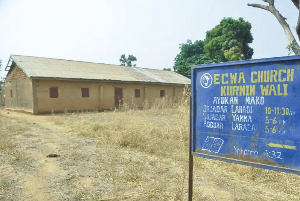Government has revealed that it plans to review the fuel pricing structure and the method of assessing foreign exchange losses and subsidies to help reduce the overall fiscal deficit.
Finance Minister, Seth Terkper said this when he presented the mid-year budget review to parliamentarians on Wednesday.
"The recent queues at the filling stations arising from delayed adjustments of fuel prices and speculations grossly affected business activities and caused a lot of personal discomfort for Ghanaians,’’ he said.
Mr. Terkper also noted that government will provide alternatives of public and urban transportation for the vulnerable in society as a mitigating measure for the high fuel prices and transport fares. “In this regard, an estimated 450 buses are expected soon to contribute to this process.’’
According to the Minister, government appreciates and acknowledges the plight of the Ghanaian public with regards to the fuel price increases and how it disrupts and affects “the effective planning by the business community’’.
Civil Society and Organised Labour have questioned government’s decision to pass on the effects of the losses in exchange rate depreciation to Ghanaians in fuel price increase.
‘’There is no economic or social justification for the upward increase in the prices of petroleum products that the National Petroleum Authority (NPA) and government continue to force down the throat of Ghanaians,’’ Organised Labour said in a statement.
But Mr. Terkper in his mid-year budget review explained that the government will implement an automatic adjustment system to the ex-pump fuel price that “will avoid wide swings in prices’’.
Touching on the Single Spine pay policy, the minister said the government is implementing initiatives that will ensure the sustainability of the Single Spine and also to achieve a wage to tax revenue ratio of 35 percent by 2017.
The Minister also in the budget review stated that Ghana’s GDP has grown by 6.7 percent in the first quarter of 2014, down from 9.0 percent in the corresponding period in 2013.
”The Agriculture Sector led with a growth of 12.7 percent, up from 6.7 percent in the analogous quarter in 2013. The Services Sector followed with a growth of 4.6 percent compared to 10.4 percent recorded in the same quarter of 2013, while the Industry Sector contracted by 1.1 percent compared to its growth of 8.1 percent growth in the corresponding period in 2013,” Mr. Terkper said.
Business News of Wednesday, 23 July 2014
Source: Adu Koranteng
Gov’t to review fuel pricing structure
Entertainment












